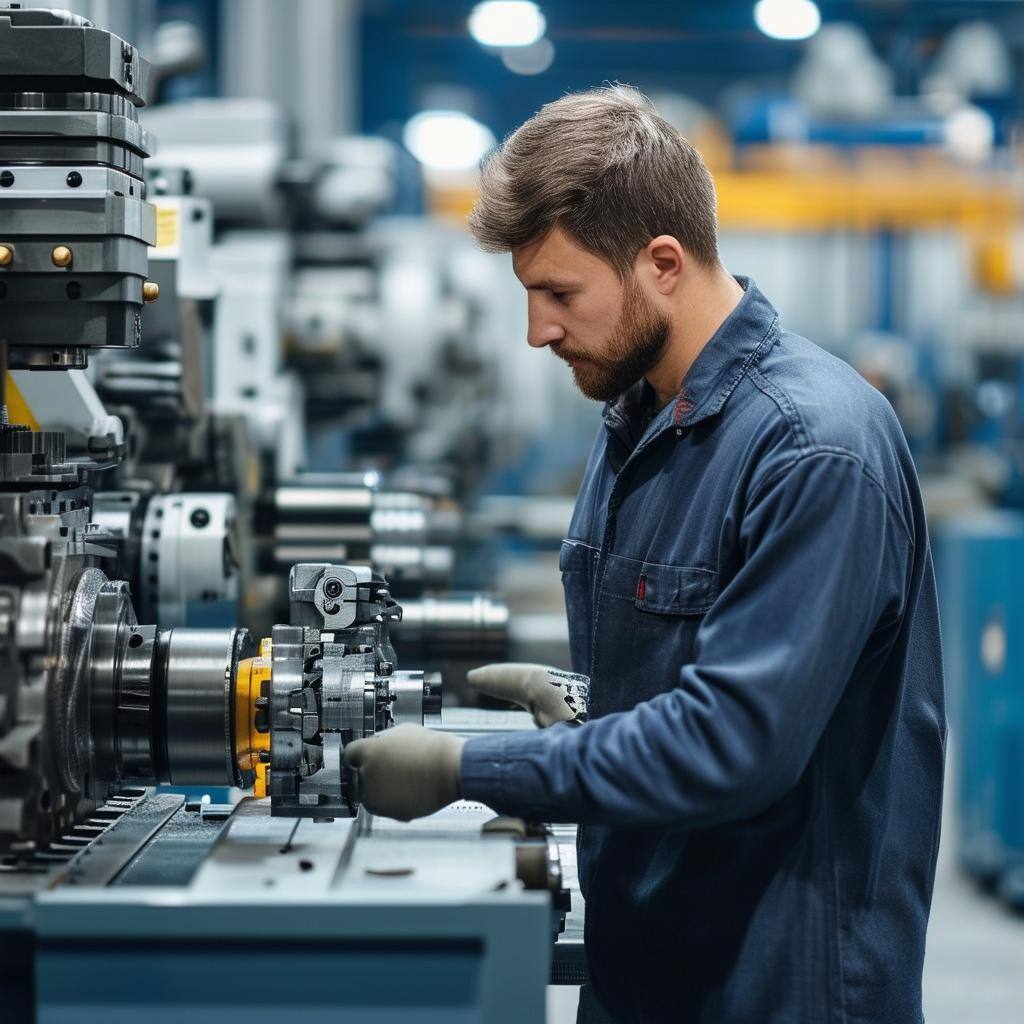Machine tools are vital for manufacturing businesses across industries, helping create everything from automotive parts to aerospace components with precision. Acquiring this equipment can be costly, and financing or leasing options provide businesses with a feasible way to access essential tools without upfront financial strain. This guide will break down the advantages, options, and steps to secure financing or leasing for machine tools.
Why Finance or Lease Machine Tool Equipment?
Purchasing machine tools outright requires a significant capital investment, which may strain a company’s finances. Financing or leasing allows for a flexible approach, providing access to top-quality machinery with manageable payments. Here are some primary benefits:
- Lower Initial Costs: Financing or leasing enables businesses to avoid large upfront payments, preserving cash flow.
- Access to Advanced Technology: Financing and leasing allow companies to acquire high-performance equipment, improving productivity and competitiveness.
- Predictable Monthly Payments: Fixed payments support budget planning and stability.
- Tax Advantages: Leasing payments are typically deductible as business expenses, and financed equipment may qualify for depreciation.
- Reduced Obsolescence: Leasing offers the option to upgrade equipment regularly, ensuring you have access to the latest technology.
Types of Machine Tool Equipment Eligible for Financing & Leasing
-
CNC Machining Centers:
- Essential for precision manufacturing, CNC machining centers allow for complex tasks with minimal manual intervention.
-
Lathes:
- Commonly used in metalworking, lathes are indispensable for turning, drilling, and shaping parts in various industries.
-
Milling Machines:
- Ideal for cutting and drilling, milling machines are necessary for creating precision parts.
-
Grinders:
- Used for surface finishing, grinders are crucial in industries like automotive and aerospace to ensure smooth, precise parts.
-
Presses:
- From hydraulic to mechanical, presses are essential in forming and molding operations, making them indispensable in metal fabrication.
-
3D Printers for Industrial Applications:
- Widely used for prototyping, 3D printers are becoming integral in toolmaking for creating intricate and complex designs.
-
Plasma and Laser Cutters:
- Essential for precision cutting, these machines are common in metal and industrial fabrication for creating clean, intricate cuts.
Financing vs. Leasing Machine Tool Equipment: What’s the Difference?
Financing Machine Tool Equipment
- What It Is: Financing is akin to a loan, allowing the business to own the equipment after making monthly payments for a specific term.
- Best For: Businesses intending to keep and use the machine tools long-term.
- Advantages:
- Full ownership after payments are complete.
- Potential tax benefits through depreciation.
- Stable monthly payments make financial planning easier.
- Disadvantages:
- Higher initial commitment and long-term responsibility for maintenance.
- Potential risk of equipment obsolescence.
Leasing Machine Tool Equipment
- What It Is: Leasing allows a business to use the equipment without ownership. At the end of the lease, options include renewing, buying, or returning the equipment.
- Best For: Businesses seeking lower upfront costs, flexibility, and regular equipment updates.
- Advantages:
- Lower monthly payments than financing.
- Easier to upgrade to new technology.
- Reduces the risk of obsolescence.
- Disadvantages:
- No ownership unless a buyout is exercised.
- May be costlier over the long term if leases are frequently renewed.
Types of Leasing Options for Machine Tool Equipment
-
Operating Lease:
- A short-term lease that allows the company to use equipment without ownership intent. Ideal for businesses that need to upgrade often.
-
Capital Lease:
- A long-term lease similar to a loan, typically leading to ownership. Suitable for businesses planning to keep the equipment.
-
Fair Market Value (FMV) Lease:
- Offers flexibility at the lease end with an option to buy the equipment at its fair market value or return it, ideal for companies uncertain about long-term needs.
-
$1 Buyout Lease:
- Allows businesses to buy the equipment for $1 at the end of the lease term, often preferred by companies wanting to keep the machinery.
Steps to Secure Machine Tool Equipment Financing or Leasing
-
Assess Your Equipment Needs:
- Determine the type and specifications of machine tools required based on your production goals and long-term business plans.
-
Set a Budget:
- Identify a comfortable monthly payment range. Leasing often offers lower payments, providing flexibility.
-
Research Lenders or Leasing Companies:
- Look for financing providers with experience in manufacturing or industrial equipment. Compare terms, interest rates, and services.
-
Gather Financial Documents:
- Prepare financial statements, tax returns, and cash flow information to support the financing or leasing application.
-
Submit an Application:
- Apply with details on how the equipment will benefit your business, supporting long-term growth and financial stability.
-
Review the Terms:
- Carefully read through the terms, including payment schedules, maintenance responsibilities, and end-of-term options.
Benefits of Financing & Leasing Machine Tool Equipment
- Preserve Working Capital: With financing or leasing, you can maintain cash reserves for other essential expenses.
- Enhanced Productivity: High-quality machine tools increase production speed and accuracy, which translates to better customer satisfaction.
- Predictable Cash Flow: Fixed monthly payments help stabilize budgeting and forecasting.
- Tax Advantages: Leasing payments may be deductible, and financed equipment often qualifies for depreciation, offering potential tax savings.
- Stay Competitive with New Technology: Leasing enables regular equipment upgrades, ensuring your business stays competitive with the latest advancements.
Conclusion
Machine tool equipment financing or leasing offers flexible, budget-friendly options for manufacturing businesses to access vital machinery without the financial burden of upfront purchases. By understanding the differences between financing and leasing, assessing your business’s unique needs, and exploring available options, you can secure the equipment necessary to boost productivity, meet production goals, and drive sustainable growth.






